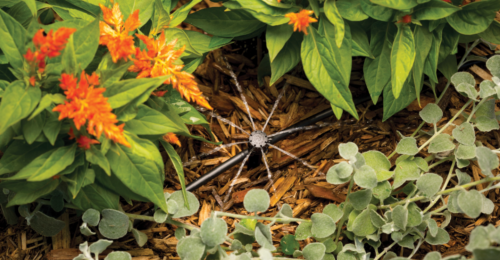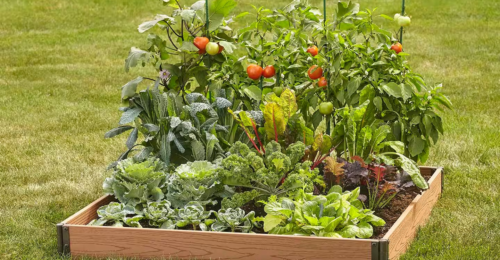If you have been fortunate enough to walk through a forest and smell the damp earth beneath the tree canopy, watch the sunlight dance through leaves, and hear bird calls and the scurry of unseen woodland creatures, you know that a forest is an entire ecosystem. Sustainable management of these ecosystems is essential because they are home to biodiversity and provide important services for people – including filtering the water we drink and the air we breathe – and 1.6 billion people across the globe rely on forests for their livelihood. Our supplier CMPC is going beyond the most rigorous standards in forest management to protect biodiversity, soil health and the climate while still providing beautiful, finish-grade plywood.
In 1888, Chile was primarily an agriculture economy until agronomist Arturo Junge Sahr introduced the radiata pine from Northern California to counteract soil erosion caused by grain farming. The radiata pine proved to thrive in the Chilean climate and today accounts for nearly 60% of the cultivated species in the country.
 CMPC was founded in Chile over 100 years ago and started manufacturing pulp and paper in the late 1950s. They transitioned to lumber in the 1980s and today manage 3.3 million acres of forestland in Chile, Brazil and Argentina, of which nearly one million acres are under conservation and/or native forest restoration. And as a forestry leader, they are always replanting. In 2023 alone, CMPC grew nearly 82 million trees in their nurseries and planted approximately 71 million trees in their forests. Their forestry operations in these three countries consist of tree plantations, and all have Forest Stewardship Council (FSC) certification, representing 97% of their total assets. FSC certification confirms that growers adhere to strict environmental, social and economic standards, ensuring forests are responsibly managed with the whole ecosystem in mind, as well as providing social and economic benefits to the communities in which they are grown and processed.
CMPC was founded in Chile over 100 years ago and started manufacturing pulp and paper in the late 1950s. They transitioned to lumber in the 1980s and today manage 3.3 million acres of forestland in Chile, Brazil and Argentina, of which nearly one million acres are under conservation and/or native forest restoration. And as a forestry leader, they are always replanting. In 2023 alone, CMPC grew nearly 82 million trees in their nurseries and planted approximately 71 million trees in their forests. Their forestry operations in these three countries consist of tree plantations, and all have Forest Stewardship Council (FSC) certification, representing 97% of their total assets. FSC certification confirms that growers adhere to strict environmental, social and economic standards, ensuring forests are responsibly managed with the whole ecosystem in mind, as well as providing social and economic benefits to the communities in which they are grown and processed.
CMPC supplies finish-grade plywood, trim boards and mouldings to approximately two-thirds of The Home Depot’s U.S. stores. Their plywood boards have a beautifully consistent, quality grain with minimal knots. They can achieve this degree of quality because they own and manage their own forests, trimming branches from the pines at three, five and seven years of growing, then allowing the trees to grow for another 10–15 years. When it’s time to harvest, the trees are shaved like an apple peel and yield grains worthy of cabinetry, shelving and furniture. “Natural fiber is the ultimate sustainable product because it can be made forever,” says Jud Walford, merchant at The Home Depot, “and FSC certification gives us peace of mind that we’re buying sustainably managed wood.”
But what does a global forestry manager do when nature cannot be contained? Chile experienced devastating forest fires in 2017 and 2022. In 2017, 1.4 million acres were lost, and the fires in 2022 were even worse for CMPC. These catastrophic events served as a wake-up call about the severity of climate change impacts on the country, resulting in a nearly 2,000% increase in fire prevention spending to ensure Chile is poised for resiliency, transforming risks into opportunities. When the land was ready for replanting after the fires, CMPC replanted in a more resilient way to widen interface rings around developed areas to protect human life and infrastructure; strategically replanned the forest to diversify species; and established nearly 90 miles of a biological corridor for wildlife to move freely under the protection of tree cover. The company now monitors biodiversity with cameras throughout their forestlands to continually adjust aspects of the forest as needed for biodiversity to thrive.

CMPC also has impressive efforts in other key environmental areas, including working toward a commitment to net-zero carbon emissions by 2040. Approximately 81% of their total energy used in mobile and stationary operations is from renewable energy sources. They have announced a science-based target of 50% reduction of absolute scope 1 and 2 greenhouse gas emissions by 2030 from a 2018 baseline, along with a scope 3 emissions reduction of 37.5% by 2035. They are working to reduce water use intensity by 25% by 2025, achieve zero waste to landfill by 2025 and add 250,000 additional acres to their conservation land by 2030. And they recently completed the Environmental Product Declaration (EPD) process for plywood products to identify environmental hot spots where they may need to focus product sustainability efforts to meet upcoming European Union regulation requirements. These proactive improvement efforts and a commitment to sustainable forestry practices make CMPC an industry leader and a valued supplier to The Home Depot.






